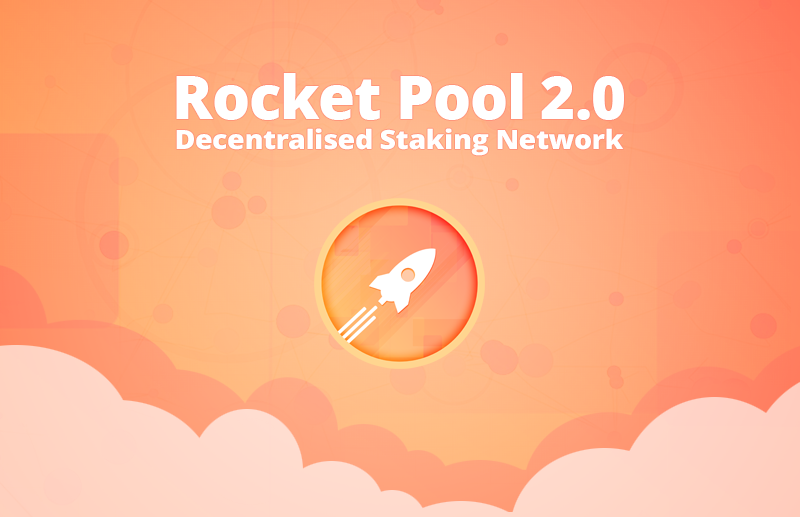
Rocket Pool™ | Protocol Home
What Is Rocket Pool?
Rocket Pool is a decentralized Ethereum-based platform designed to provide a unique and innovative solution to the staking problem in proof-of-stake (PoS) blockchain networks. In this article, we will explore Rocket Pool in detail, discussing its purpose, features, benefits, and potential impact on the crypto ecosystem.
Introduction to Proof-of-Stake (PoS) and Staking:
Proof-of-Stake is a consensus mechanism used by several blockchain networks, including Ethereum 2.0, to validate transactions and secure the network. In PoS, validators are chosen to create new blocks and validate transactions based on the number of tokens they hold and are willing to "stake" as collateral.
Staking refers to the act of locking up a certain amount of cryptocurrency to participate in the validation process. By staking, individuals contribute to network security and, in return, receive rewards in the form of additional cryptocurrency.
The Staking Problem and Rocket Pool's Solution:
While PoS offers several advantages over traditional proof-of-work (PoW) systems, it presents a challenge known as the staking problem. The staking problem arises from the requirement for validators to maintain a minimum balance of cryptocurrency for participation. This poses barriers to entry for smaller token holders who may not have enough funds to meet the required threshold.
Rocket Pool aims to address the staking problem by introducing a decentralized staking platform that allows both large and small token holders to participate in staking and earn rewards, even if they do not possess the minimum required amount of cryptocurrency.
How Rocket Pool Works:
Rocket Pool achieves its objectives through a unique architecture that combines smart contracts and a network of node operators. Here's a simplified overview of the process:
a. Node Operators: Anyone can become a node operator by running a Rocket Pool node. Node operators contribute their own cryptocurrency to create a pool of staked assets and provide infrastructure for staking.
b. User Deposits: Token holders who want to stake their assets but don't meet the minimum requirements can deposit their tokens into Rocket Pool's smart contracts.
c. Tokenization: Rocket Pool tokenizes the user deposits into "rETH" tokens, which represent a user's stake in the pool. These tokens can be transferred or traded while remaining staked.
d. Node Performance and Rewards: Node operators are incentivized to maintain high-performance and uptime for their nodes. Based on their performance, they receive a portion of the staking rewards generated by the pool.
e. User Rewards: Users who deposit their tokens receive staking rewards based on the performance of the entire pool. Rewards are distributed in proportion to the amount of rETH tokens held.
Benefits of Rocket Pool:
Rocket Pool offers several benefits to different stakeholders within the ecosystem:
a. Accessibility: Rocket Pool enables smaller token holders to participate in staking by pooling their resources together, eliminating the barrier of entry.
b. Liquidity: Tokenized rETH allows users to trade or transfer their stake without compromising their staked position, providing liquidity in the staking ecosystem.
c. Decentralization: Rocket Pool's decentralized network of node operators ensures the security and reliability of the staking process.
d. Network Effect: By allowing more participants to stake, Rocket Pool enhances the security and decentralization of the underlying blockchain network.
Potential Impact on the Crypto Ecosystem:
Rocket Pool's innovative approach to staking has the potential to revolutionize the crypto ecosystem in several ways:
a. Increased Participation: Rocket Pool encourages broader participation in staking, leading to a more decentralized and secure network.
b. Enhanced Liquidity: The tokenization of staked assets introduces liquidity to the previously illiquid staking process, potentially attracting more users to participate.
c. Development Acceleration: Rocket Pool's infrastructure can support new decentralized applications and services that rely on staking, fostering innovation and growth in the ecosystem.
d. Economic Incentives: By enabling smaller token holders to stake and earn rewards, Rocket Pool promotes a more inclusive and fair distribution of staking benefits.
Conclusion:
Rocket Pool represents a pioneering solution to the staking problem within the PoS ecosystem. By enabling broader participation and introducing liquidity to the staking process, Rocket Pool has the potential to drive increased decentralization, security, and innovation in the crypto space. As the project continues to evolve and Ethereum 2.0 becomes fully operational, Rocket Pool's impact on the ecosystem is eagerly anticipated.
Please note that the details provided in this article are based on information available up to my knowledge cutoff in September 2021. It is advisable to refer to the official Rocket Pool website or other reliable sources for the most up-to-date information on the project.